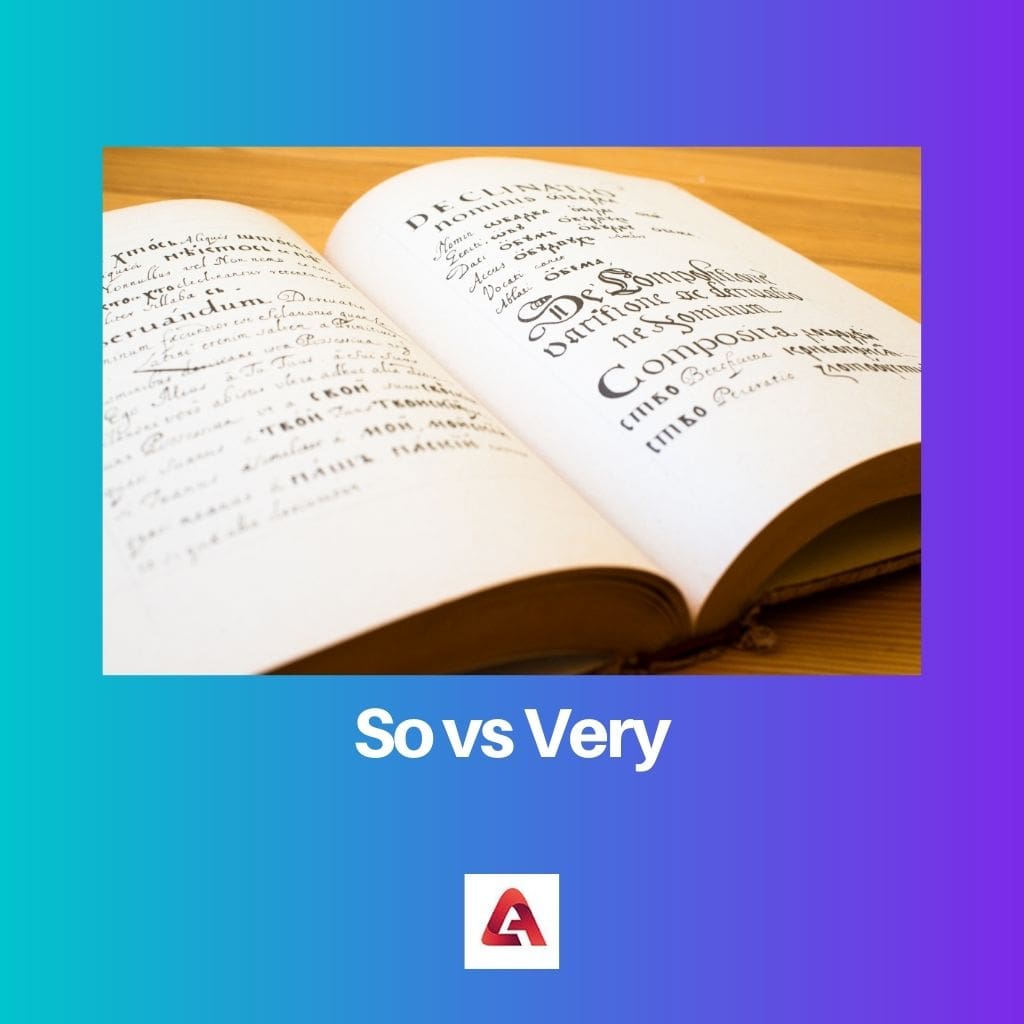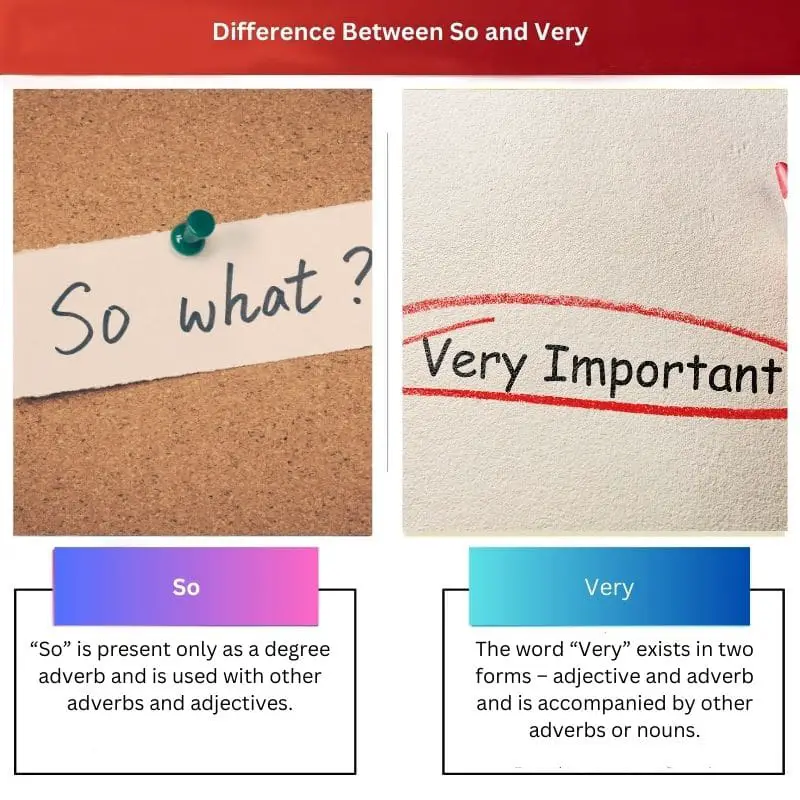“So” and “Very” are used in a sentence to help strengthen adverbs or adjectives. The two words help provide much-needed emphasis on the subject matter at hand.
Key Takeaways
- “So” is an adverb used to emphasize the extent or degree of quality, whereas “very” is an adverb that intensifies adjectives and adverbs.
- “So” can introduce a clause that explains the reason for an action, while “very” is solely used to modify adjectives or adverbs.
- “So” is more versatile, as it can also express causality, whereas “very” is limited to intensifying qualities.
So vs Very
The difference between So and Very is that the Very can introduce and provide new information, while So can emphasise that information. These two words differ primarily in the forms in which they are used.

The word “So” is used to emphasise a point being stated in a sentence as a form of an exclamation. It intensifies the structure of the sentence.
In its grammatical usage, the word “Very” can be used to intensify an adverb and help cement the fact being stated. But when used literally, it could also convey a large or small amount’.
Comparison Table
| Parameter of Comparison | So | Very |
|---|---|---|
| Grammatical form | “So” is present only as a degree adverb and is used with other adverbs and adjectives. | The word “Very” exists in two forms – adjective and adverb and is accompanied by other adverbs or nouns. |
| Usages | “So” can be used to – intensify a fact or a point, describe a task, provide a negation, or even confirm a tautology. | Used to – emphasise information being provided, convey the size of something, or highlight the quality of something. |
| Substitution of words | The word “So” unlike “Very” cannot be substituted in place of words like “Really”. | “Very” can be used instead of “Really” as they have similar meanings in the same context. |
| Example | “They were so right when they said the burger was spicy.” “Fold the napkins in the form of a rectangle like so.” | “There was a huge plane at the airstrip.” “The breadsticks taste very good today.” |
| Synonyms | Accordingly, consequently, therefore, thus. | Extremely, vastly, tremendously, immensely. |
When to Use So?
The word “So” during the use of Old English was purely intensive. But throughout the 1900s, as the English language developed, so did the various meanings of “So”.
One of the main usages of “So” in a sentence is to intensify the fact being conveyed. It helps to add an emphasis on the subject matter being relayed. This way allows one to exclaim a feeling as well. i
Example –
- “The project handed out by the professor is so difficult; it just gives me a migraine!”
- “ I can never understand how someone could be so insensitive!”
Different use of “So” is also seen when one uses it to argue against a negation. This is not used in formal conversation and usually, is seen when children are talking.

When to Use Very?
The word “very” during the late 13th century was primarily used as a replacement for terms such as – genuine, actual, and sheer.
“Very” exists in two forms when looking through a grammatical perspective –
- Adjective
- Adverb
“Very” is also used to convey an object’s size, whether large or small and even compare two different proportions.
Example –
- “Yesterday at the aquarium, I saw a blue whale, and they are huge compared to any mammal on earth.”
- “I could only purchase a minimal amount of blue cheese at the supermarket.”

Main Differences Between So and Very
- “Very” can introduce new information in a sentence, while “So” can accompany it to emphasise the statement.
- In terms of synonyms, “So” has the same meaning as accordingly, consequently, therefore, thus. While “Very” is somewhat similar to vastly, tremendously, immensely.


The comment on when to use ‘so’ was a bit confusing. It could have been clearer.
I found the article to be very informative. It was well researched and clearly explained.
This article is quite comical. You can definitely sense a sarcastic tone from the writer.
The argument for one of the usages of so is incorrect. This makes the article inaccurate as a whole.
The comparisons made between ‘so’ and ‘very’ were quite persuasive. I understood the differences better.
The use of historical context for very was quite informative. I wasn’t aware of this fact.
There is a new information about these adverbs and great examples for both words. It was helpful.
The article would be better if it contained more examples of the differences between these adverbs.
The ironic tone of this article is too much. It makes it difficult to take the content seriously.
There is a good use of synonyms in the article, which makes the information easier to understand.